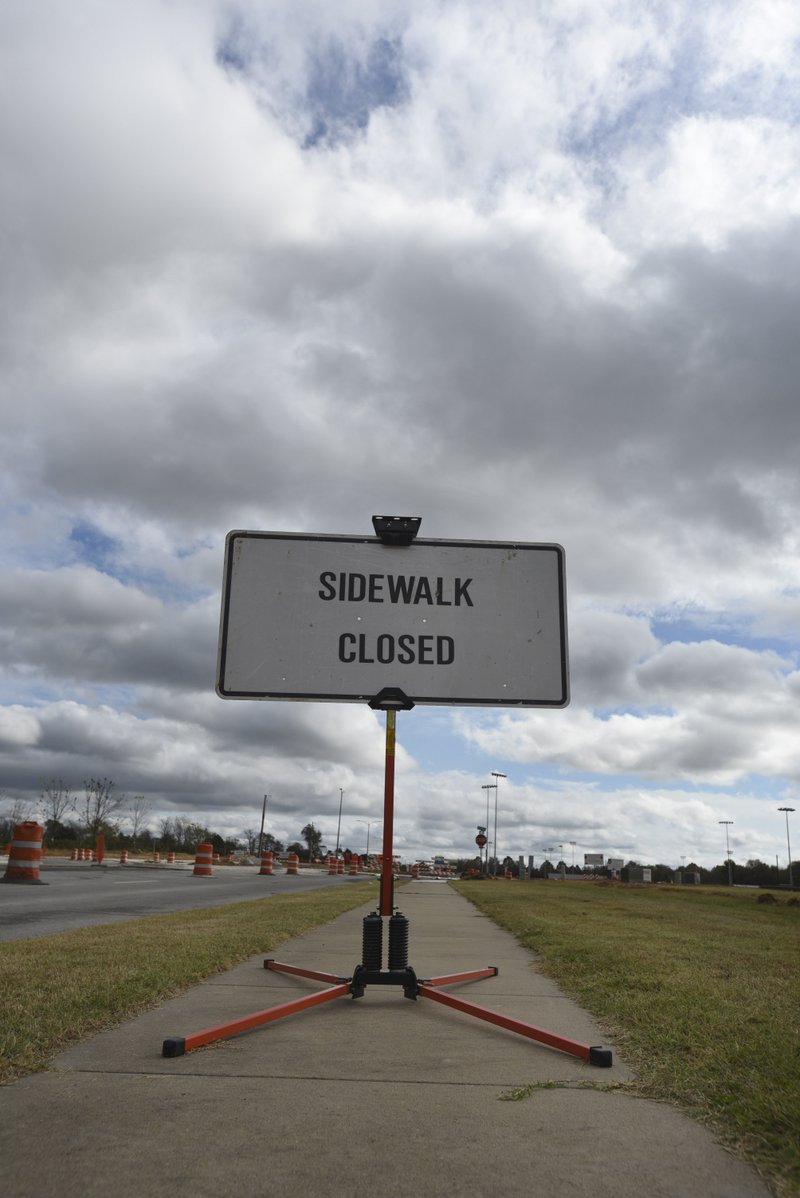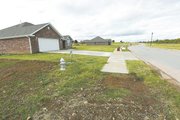SPRINGDALE -- Aldermen have approved at least eight waivers this year allowing developers to skip building sidewalks with their construction projects.
All new developments in the city are required to have sidewalks, said Patsy Christie, director of planning and community development. This is only required for new construction projects and not for renovations.
Web Watch
To read more about the benefits of sidewalks, go to fhwa.dot.gov, hover over “Programs” in the upper menu and click on “Safety” in the list that appears. Click on “Tools to Diagnose and Solve the Problem” in the menu on the left and scroll down and click on “Safety Benefits of Walkways, Sidewalks, and Paved Shoulders–Booklet.”
Developers can request waivers for street improvements, drainage, curbs, gutters or sidewalks, according to Springdale's code of ordinances. Waiver requests first are heard by the Planning Commission and, if approved, are forwarded to the City Council.
Christie said she usually recommends officials deny requests for sidewalk waivers. Each one approved is one more the city will probably have to use taxpayer money to eventually build, she said.
Development of sidewalks also helps form a more walkable community, Christie added, by providing a safe place to walk and an alternative means of transportation.
Curbs, gutters and street improvements are done along with subdivisions, while the houses in those subdivisions must have sidewalks built with them, Christie said. Sidewalks, gutters, curbs and street improvements are required for large-scale development plans.
Christie said waivers are usually for single-family homes.
A sidewalk for most houses that aren't on corner lots would be 80 feet long and 5 feet wide, said Lupe Garcia, co-owner of Garcia's Excavating and Elite Concrete Services in Springdale. That's 400 square feet of sidewalk, which would cost about $1,200 in labor and material. A sidewalk for the same type of house on a corner lot would cost more than twice as much.
Prices for sidewalks varies, Garcia said. Those numbers are his prices.
Alderman Jim Reed voted in favor of most of the waivers. He said he looks at each waiver on a case by case basis. Reed said he won't reject a request for a sidewalk waiver for rural property where there is nowhere for the sidewalk to connect. A sidewalk in a residential subdivision would be different, he said.
The city offers alternatives to a full waiver.
A property owner can make payment in lieu of improvements, Christie said. The money goes into a city escrow account. That money can then be used on street and sidewalk projects later. The money is specified for projects on the street where that property resides, said Clayton Sedberry, planning and geographic information systems coordinator for the city.
The city has received about $3.1 million in lieu of improvements since it began to receive that money in July 1993, according to Denise Pearce, city clerk and treasurer. The city has spent about $2.3 million from those funds, leaving about $800,000 unused.
A property owner can also request a "bill of assurance" they will pay for the improvements when the city takes on a related project on that street, Christie said. That request would need to go before the Planning Commission and, if approved, would be forwarded to the City Council.
However, the city can contract to complete the improvements if a property owner agrees to do them and doesn't within a specified amount of time. A lien would then be placed on the property to recoup the money.
Sidewalks will also be addressed in the city's future downtown plan, Christie said. Timothy Breihan, one of the people working on the plan, hopes the city will adopt it in December or January.
Fayetteville doesn't use waivers when it comes to improvements or building sidewalks, said Jesse Fulcher, senior planner. When there is a new development in the city, the planning and engineering employees evaluate what is needed on the street frontage and make a recommendation when the large-scale development plan goes before the Planning Commission. They also make a determination of what is needed when a development is small enough to be approved administratively.
The need for sidewalks on a development project is considered on a case by case basis, Fulcher said. They also consider whether the cost of the public improvements are proportional to the cost of the development. If it's roughly proportional and meets the city's needs, then it is required.
"There's no one size fits all," he said.
Similar to Springdale, Fayetteville can also take money in lieu of building sidewalks, Fulcher said. This generally happens if there are no sidewalks in the area, he said.
Fayetteville doesn't accept bills of assurance for public improvements, Fulcher said. The city allows financial guarantees, which are most often used for the development of residential subdivisions. For these guarantees, the city holds money from the developer that the city can use to finish the public improvements if the developer doesn't, he said.
In Rogers, sidewalks are required along with development of subdivisions and commercial developments with large-scale development plans, said Steve Glass, director of the city's planning and transportation department. In subdivisions, a sidewalk would be built after the house is completed.
Rogers doesn't do waivers or bills of assurance for sidewalks, but the city takes fees in lieu of building sidewalks, Glass said.
In Bentonville, any development project that fronts a public right of way must improve or build sidewalks to meet the standards of the city's master street plan, said Ben Peters, city engineer. Bentonville doesn't allow bills of assurance, but does accept letters of credit for guarantees from developers. The city also takes fees in lieu of improvements under certain circumstances, like if the city is already planning a road project in the area of the development project.
Bentonville doesn't often approve waivers for building or improving sidewalks along with development projects, Peters said. In a situation like that, the city's engineering department would recommend a waiver at the same time the Planning Commission is considering the large-scale development.
Developers of single-family residences and duplexes, however, don't need to go before the commission with large-scale development plans, Peters said. A waiver for one of those developments would go before the city's Board of Adjustment.
NW News on 11/01/2015

